Just the other day we announced that Julie Smith’s The Axeman’s Jazz (Skip Langdon #2) (Skip Langdon Mystery) is our Thriller of the Week and the sponsor of thousands of great bargains in the thriller, mystery, and suspense categories: over 200 free titles, over 600 quality 99-centers, and thousands more that you can read for free through the Kindle Lending Library if you have Amazon Prime!
Now we’re back to offer our weekly free Thriller excerpt:
14 Rave Reviews
Or currently FREE for Amazon Prime Members Via the Kindle Lending Library
Text-to-Speech and Lending: Enabled
Here’s the set-up:
The SECOND BOOK in the Skip Langdon mystery series by EDGAR AWARD-winning author Julie Smith.
“Gritty and Witty … Langdon is a splendid female heroine … The Axeman’s Jazz is a mesmerizing story.” –People
Julie Smith not only firmly establishes her claim to the New Orleans crime scene, but she explores an intriguing new franchise for the serial killer.”
–Sue Grafton
“Marvelous…” –Chicago Tribune
MURDER ANONYMOUS…
Who is killing the codependents of New Orleans? As well as the sex addicts, alcoholics, overeaters, and anyone else who attends those bastions of anonymity, the 12-Step programs. It’s a perfect set-up for a serial killer. He (or maybe she) can learn your secrets from your own mouth and then make friends over coffee. After that, it’s easy…
…At least for The Axeman. He’s named himself after a historical serial killer. This creep has hubris as well as chutzpah. He just needs to go down.
Leave that part to tall, funny, social-misfit Skip Langdon, now a homicide detective on the Axeman team, a gig that takes her into the 12-Step groups to meet the suspects (giving author Smith a chance for gentle satire). As Skip threads her fascinated way from one self-help group to another, she finds she has more in common with the twelve-steppers than just the murder—her mother, for one thing, whom she encounters at Overeaters Anonymous! And she knows what they do not: that among their anonymous numbers is a murderous, and dangerously attractive psychopath.
“With an acute ear for New Orleans speech and a sharp eye for the city’s social stratification, Smith keeps the reader’s heart palpitating to the end of this mystery of unusual depth.” -Publishers Weekly
“The Axeman’s Jazz is the kind of book that leaves you torn between running out and devouring all the other mysteries in the series, or spacing them out as periodic special treats. Julie Smith garnered great attention, including an Edgar for Best First Mystery, with her initial entry in this series, the 1990 publication of New Orleans Mourning featuring police detective Skip Langdon … in New Orleans, of course. The Axeman’s Jazz is the second of the series and even better than the first.” -BookLoons Reviews
If you like Laura Lippman, Sue Grafton, Linda Barnes, Nevada Barr, and Marcia Muller, Julie Smith’s your new best friend.
And here, for your reading pleasure, is our free excerpt:
One
NEW ORLEANS COULD wreck your liver and poison your blood. It could destroy you financially. It could shun you or embrace you, teach you tricks of the heart you thought Tennessee Williams was just kidding about. And in August it could break your spirit.
It was the steady diet of cholesterol and alcohol that got your body, the oil glut that had hit the economy. The weather did the rest. If you could tolerate the heat and the damp, the lightning changes in the atmosphere, indeed, if you took to them, you could get addicted. If you didn’t, you didn’t belong.
If you were one of those who did belong, you could know the fragile sweetness of love on a rainy morning, the feral taste of lust on a stormy afternoon, the randy restlessness that travels through the air with the scent of ozone.
But sometimes in August, when the city had been a sauna for months, when the unmoving air seemed as toxic as that of Pluto, everything seemed to stink and so did everyone. And you couldn’t move.
You couldn’t make a phone call, you couldn’t do your filing, you had no ambition, the simplest chore was too much.
And that was with air conditioning.
Skip Langdon wondered what kind of hellhole the city had been before it was invented.
She had just come back from lunch and her ankles were swollen. Some said it was the salt in the seafood that did it, some said just the heat. She’d noticed it sure as hell didn’t happen in winter.
But no problem. In two days she’d be out of here. A line from an old song—”California Dreamin’ “—popped into her head. It was about winter, but it perfectly described her state of mind. In the Crescent City the bad season was summer. Though her head was full of sea breezes instead of smog, at the moment even L.A. in a smog alert seemed preferable to New Orleans in August. And Skip had a tolerance for the heat, almost liked it.
She was aware that the fact that she’d be seeing her friend Steve Steinman probably played no small part in her wanderlust. She’d met him here at Mardi Gras and hadn’t seen him since. Would he be different on his own turf? Did he live in a sterile condo or a funky old house? (Whatever it was, it couldn’t be any worse than her studio on St. Philip Street.) Was he a good housekeeper? (She hated a man who wasn’t.)
Was she really in love with him, or had they just gotten caught up in the moment? She felt absurdly adolescent about this vacation.
Or at any rate, she supposed she did. She hadn’t dated in high school, had been too tall, too fat, too confused, and probably, to the other kids, too weird. Of course she’d been to Miggy’s and Icebreakers, sixth-grade dancing school and seventh-grade subscription dances—every McGehee’s girl had. But the “normal” course of events hadn’t materialized.
She smiled—rather nastily—as she imagined how much that must have chagrined her social-climbing parents. It had so chagrined her at the time she hadn’t noticed the neat revenge in it. But in the end, they’d won—they’d worn her down to the point she’d agreed to make her debut. If they’d known she’d end up a cop, they probably would have saved their money.
The phone jangled her out of her reverie and she saw that she’d doodled a pathetic paraphrase, “August is the cruelest month,” without realizing it.
“Langdon. Homicide.”
She might be semi-conscious, but she wasn’t dead yet. It still gave her a thrill to say that, to listen to herself proclaiming what she was, to feel she’d made it in her hometown. Informally, she was a detective now, and she had been for a month. Technically, she was still a patrol officer, since “detective” wasn’t a rank in the New Orleans department, just a description.
At Mardi Gras, she’d been a rookie walking a beat (literally walking—VCD, the Vieux Carré District, was the only walking beat in town). A week later she’d almost resigned—and now here she was in Homicide. She still only half believed it.
It was the desk officer on the phone. Some French Quarter apartment manager had had some kind of crazy suspicion about one of his tenants. Two guys from VCD had responded and found a body.
That was bad. She was the only one in the office and her vacation started in two days. Her sergeant, Sylvia Cappello, had tried not to get her in too deep before she left—most homicides that weren’t solved in the first week didn’t get solved—but it looked as if the plan might have backfired.
It was an old building, poorly kept, the real-estate market being so soft no one could afford to fix anything up.
One of the VCD guys was smoking out front, making Skip long momentarily for her uniform. (She’d had to buy clothes for her transfer, having had hardly a rag in her closet before it came through.) At the moment, she was wearing a basic-black skirt—she’d bought three of them—with a beige silk blouse and a pair of flats. She had had the courage not to wear heels, but a rare moment of social insight had suggested she really couldn’t skip pantyhose. So at the moment her legs felt like sweaty sausages.
“Hi, I’m Langdon.”
The uniform smiled. He was cute. “Apartment four.”
She hoped to God the AC was on.
A man called down the stairwell, “Are you a friend of Linda Lee’s?”
She shook her head, tried to look friendly as the old guy came into view. “I’m from Homicide.” She showed her badge.
He looked nearly eighty, thin, with shrunken shoulders. He frowned, but not so much, she thought, with displeasure as with the fear of giving it. He reminded her of her grandfather, her father’s father back in Mississippi.
He extended his hand. “Curtis Ogletree. I’m the manager. Thought you might want to talk to me.”
“Thanks. In a minute I’ll knock on your door if I may— I’ll just have a look first.”
“I better go in with you.”
“That’s okay. I can handle it.”
But he tried to follow her. A true Southern man, she thought, determined to do his duty no matter how unpleasant for himself, how inconvenient for others. By God, he was going to be helpful. Her grandfather had driven her nuts, actually removing her paper dolls from her tiny hands, cutting the clothes out himself, never understanding why she screamed in rage and frustration.
Who knew what Curtis Ogletree felt responsible for? Perhaps he didn’t think he should leave the owner’s property unattended; more likely, he was trying to be gallant, to protect a lady about to be in distress. Perhaps he thought he’d catch her if she fainted. The corners of her mouth twitched even as she soothed and shooed him—he was about five feet nine, 140 pounds; she was six feet tall and didn’t tell her weight.
She sighed, closing the door of the woman’s apartment. Linda Lee, Ogletree had called her, but Skip didn’t know if it was a first and last name or two firsts. Instantly, her gorge rose. Yes, the air conditioner was on, had probably been on for days, but Linda Lee hadn’t died today or even yesterday. Skip clapped a tissue over her mouth and nose. Her eyes watered. The door opened behind her, the cute officer’s partner arriving, a guy with a beer gut.
“Pretty bad, huh?”
“Why don’t you wait outside?”
He shot her a grateful look, and she hoped he’d remember one day when she needed a favor.
She drew close to Linda Lee (if that was her name), a white female adult. Very white indeed. Short hairdo, almost prim. Not much makeup. Her neck had what might be bruises on it, but they were faint, possibly due to lividity. Purge, or white froth, had come out of her mouth and nose. There was no blood, no wounds that Skip could see, and there was nothing around her neck. But there were those marks, as if she’d been strangled. Strangled bare-handed.
She was wearing olive-drab baggy pants and a shirt open over a tank top, as if she were going out at night, expecting a cool breeze off the river. Or perhaps, Skip thought, she had chubby arms and she was self-conscious about them. A small, fashionable black bag was still slung over her shoulder, crossing her chest in mugger-foiling mode. More evidence that she was going out—or she’d already been.
Had she opened the door to her boyfriend, had they fought? Had he arrived with a snootful, to accuse her of cheating on him? Or had she been out and come home with someone who’d strangled her?
Either way, the bag was chilling, struck a perfunctory note that gave Skip goose bumps. No preamble, no foreplay. No signs of a struggle. Just murder. Skip looked at Linda Lee’s hands. Surely she had fought her attacker. There would be skin under the nails.
Skip didn’t see any. Maybe Linda Lee hadn’t thought to scratch, had only grabbed and pulled.
She lay nearly underneath a table just inside the living room. On the table was a lamp, a tray for mail, and a neat pile of books. On the wall above the table was a red A, written in what looked like lipstick.
Skip looked around the room—ordinary furniture, on the cheap side; posters tacked to the walls and one old-fashioned landscape, maybe painted by a relative or bought at a garage sale. Nothing special here, but the room was neat and looked cared for. Not the room of a crazy artist, an out-of-it alcoholic, or an obviously disturbed person—not even the room of a free spirit. Not the room of a person who painted on her wall with lipstick.
Why A? And why lipstick? To simulate blood? Was it intended to be a scarlet A with the same meaning as the original? Skip dismissed the idea as preposterous. She hadn’t been in Homicide long, but already she found it inconceivable that anyone would make a literary allusion in the midst of snuffing someone. Still, a jealous lover . . .
It was a weird town and the Quarter was plain wacko.
Technically, the victim had to be declared dead before any homicide investigation could start, and then the crime lab had to go over the place and photograph it. But Skip took a cursory look around the apartment. There was only a bedroom and kitchen, both neat, the bed made up, no dishes in the sink. Seemingly nothing out of place. Excellent. Maybe there’d be a calendar someplace with the names of recent dates, maybe letters from a rejected lover.
Skip left the two district officers to wait for the crime lab and went up to see Curtis Ogletree. Green plush overstuffed chairs and sofa shared space with small tables stained a reddish color, possibly to simulate maple. One of the tables had a magazine rack built into it, and one side of the magazine rack was a fake wagon wheel, spokes and all. The furniture seemed nearly as old as he was, or half as old anyway, which would have made it about forty, but it was in perfect condition. Mr. Ogletree had put down a tan rug.
It was a comfortable, masculine room, one in which Skip imagined Mr. Ogletree spent most of his time. “I’ve got coffee on,” he said.
Coffee! It must be ninety-eight in the shade.
“Great,” she said. “I’d love some.” She noticed his hands shook as he handed her a cup, and felt a sudden wave of sympathy.
“I’m sorry you had to go through this.”
He waved impatiently, shooing the sentiment, his frown growing deeper. “Please. It’s my job.”
If he’s the murderer, no problem. The more he frowns, the more he’s lying.
But she knew she was playing mind games with herself; he would probably lie only about how easy it was to do something hard—especially something for someone else, at great inconvenience to himself.
He looked a wreck. His face was drawn, probably with the effort of concealing the loathing and horror he felt.
Maybe it would help him to talk about it.
“Most people don’t see dead bodies except lying in coffins in their Sunday clothes. I know it was a shock for me the first time—and it never really got any easier.”
His frown was so fierce she wondered if he was going to hit her. His words and voice were gentle: “I guess it’s different for men.”
She was making things worse.
She took out her notebook, crossed her legs, leaned back, and pretended to give him an appraising look, ever-so-slightly suspicious. She made her voice crisp: “How did you happen to discover the body?”
“A lady from her office came—Lucy McKinnon. I have her number; would you like it?”
“Please.”
He rummaged in a pocket and handed over the number. “She said Linda Lee hadn’t showed up for work Friday or today and didn’t answer her phone or her doorbell. Wanted to know if she’d moved out. I said no, but I’d let her know if I found out anything—that’s why she gave me the phone number.
“Then I went down there and knocked on Linda Lee’s door myself. Now, I know I’m not s’posed to enter a tenant’s apartment without giving notice—I hope I’m not in trouble—”
“Of course not.”
“—but Miss Kitty was so pitiful. I could hear her meowin’ like she’d lost her best friend right at the door, like she knew I was there and she needed to talk to me.”
“Linda Lee had a cat?”
“Beautiful white longhair. I just couldn’t resist—’course, I did knock first, but that poor animal was just so pitiful. All I did was try the doorknob—didn’t even have to unlock it. And when it opened I couldn’t understand why I hadn’t noticed the odor—guess I had and just thought it was garbage. There she was, lying on the floor right in my line of vision. And Miss Kitty was all over me, rubbin’ against my legs like I was a hundred pound bag of catnip.”
“Did you go in?”
He flushed. “Well, I didn’t.”
Skip knew what he wanted to hear, and she provided it. “You did exactly the right thing.”
“There might have been something. . . .”
“No, there wasn’t. You knew she was dead. A ten-year-old kid would have known. Anyway, if you had gone in, it would have interfered with the investigation. Where’s the cat, incidentally?”
“Oh, I . . . well, I hope I didn’t do wrong. I brought her here and fed her. Then she went under the bed and hasn’t come out yet. Don’t blame her, do you?”
“You had cat food?”
“I, uh . . . gave her some chicken. What’s going to happen to her?”
“I guess that’ll be up to Linda Lee’s relatives. Meanwhile, we could call the humane society.”
“Oh, no, I’ll take care of her. I mean, if that’s all right.”
“I think that’s fine. But I have to ask you something painful, Mr. Ogletree. Did you see the body well enough to be able to identify it?”
“It isn’t Linda Lee?”
Skip’s heart sank. Not only didn’t she know that, she didn’t even know who Linda Lee was.
“Well, sir, you’re the only person who knows Linda Lee who’s seen the body.”
Ogletree flushed, obviously once again embarrassed at not having done a good enough job.
“It’s okay. Someone else can identify her.”
“I’ll look again if you like.” His frown was two deep slices flanking his nose.
“No need, sir.”
“I’ll be glad to.”
Sure you would, Mr. Ogletree. If ever anyone gave the lie to studies linking stress and early death, it’s got to be you. You probably also eat an oyster po’ boy a day, never exercise, and drink a six-pack before breakfast. I bet you live to a hundred and twelve.
She said, “Tell me about Linda Lee. What was her full name?”
“Linda Lee Strickland from Indianola, Mississippi. She moved in about six weeks ago, right from Indianola, didn’t even have a job yet. Then she went to work for that restaurant-supply place … I forget their name.”
“Simonetti’s.”
“Got a good job, she said. I don’t really know—maybe she just said that so I wouldn’t worry about the rent.”
“How well did you know her?”
“Pretty well, I guess. I used to take over little seafood scraps for Miss Kitty and we’d talk awhile. Come to think of it, I guess I could tell you about every cat she ever had and all the cute things they did, but I don’t really know much else about her. I sure wish I could help you on that, but I don’t think I can.”
“Did you meet any of her friends?”
“I never saw anyone there. She was a quiet girl—real good tenant.”
“Was she friendly with anyone else in the building?”
“I don’t know anything about her personal business.”
He spoke so primly Skip suspected the other tenants were men. Sure enough, they were Mr. Davies, who “traveled for” a cosmetics company, and Mr. Palmer, who worked “for the city.”
Honorifics only. Curtis Ogletree, you should be in a museum.
After reassuring him once more that he’d done just fine, Skip returned to Linda Lee’s. The body was gone; Paul Gottschalk from the crime lab had removed the purse and said she could go through it.
In it was a wallet containing Linda Lee Strickland’s credit cards and driver’s license, comb, blusher, and address book. No lipstick.
No lipstick? Did the asshole open the bag, take out her lipstick, write the A on the wall and leave with it? Keep it for a souvenir, maybe?
“Paul, was she wearing lipstick?”
“You mean you didn’t notice?”
“I don’t think she was.”
“She was. Tiny trace left. Like she’d put it on a long time before and maybe eaten or drunk something that took it off.” He sounded bored, nodded at the A on the wall. “We’re comparing samples.”
“Any other lipsticks found in the house?”
He shrugged. “Two or three. Wrong colors, but we’re checking anyway, Officer Langdon.”
“Excuse me, but do I detect a note of testiness? Am I being pushy or something?”
“Shit.” He shrugged again. “It’s the heat.”
Understanding completely (but resenting the fact that he hadn’t apologized), she more or less tiptoed around after that, trying to figure out who Linda Lee Strickland had been.
Everything screamed small-town girl without much money or education. A nice respectable girl from a blue-collar family grown into a woman who had to get married or go back to school if she didn’t want to live on the edge of poverty the rest of her life.
Apparently, Linda Lee had been working on the former; the only books in the apartment were the ones on the front table, most of which had titles like Smart Love. There were two by John Bradshaw on other subjects, but all the rest seemed to be self-help books geared to relationships. Skip sighed. Linda Lee had been Cinderella looking for her prince. But what had she had to offer him?
It was almost eerie how little of herself she’d left in the apartment. There were no magazines, no letters—she had probably gotten her news from television, and phoned her relatives rather than writing.
The address book was the only thing remotely useful—and all it contained were Curtis Ogletree’s number, that of Simonetti’s Restaurant Supply, and ten or twelve more in Indianola, Mississippi.
Neither of the building’s other occupants, Mr. Davies nor Mr. Palmer, was home. Skip canvassed neighbors in nearby buildings, those few who weren’t sweating it out nine to five, but no one had known Linda Lee, had ever seen anyone of her description, or had heard or seen anything relevant.
So Skip went over to Simonetti’s and asked for Lucy McKinnon. McKinnon was an older woman, apparently what passed for an office manager at the small operation, and she seemed to have taken quite a shine to Linda Lee, who’d answered the phone and done clerical work. A “gal Friday” in less enlightened times.
She’d often asked Linda Lee to lunch, but Linda Lee had usually said she “had plans.” McKinnon thought that a little odd, since often Linda Lee walked out of the office carrying her brown bag. But not too odd—it occurred to her that Linda Lee couldn’t afford to go out for lunch but didn’t want to say so. Or perhaps met someone for picnics. McKinnon doubted that, though, because sometimes she brown-bagged it in the rain.
Skip went back to the office, hoping the coroner had had time to notify Linda Lee’s next of kin, Mr. and Mrs. Garner Strickland of Indianola, Mississippi.
Continued….
Click on the title below to download the entire book and keep reading
 Here’s the set-up for The Prodigal Hour: A Time Travel Novel by Will Entrekin, just $4.99 on Kindle or Currently Free Via the Kindle Lending Library:
Here’s the set-up for The Prodigal Hour: A Time Travel Novel by Will Entrekin, just $4.99 on Kindle or Currently Free Via the Kindle Lending Library:



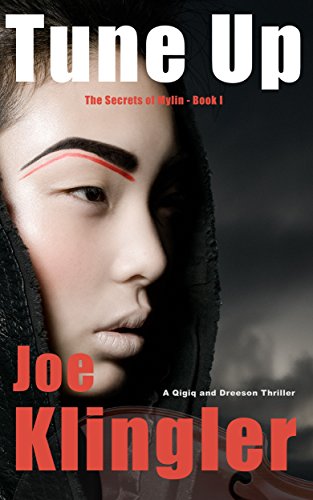
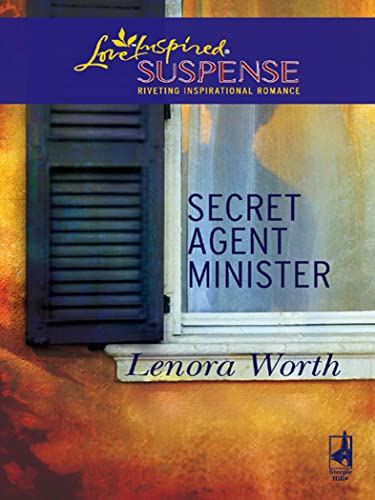
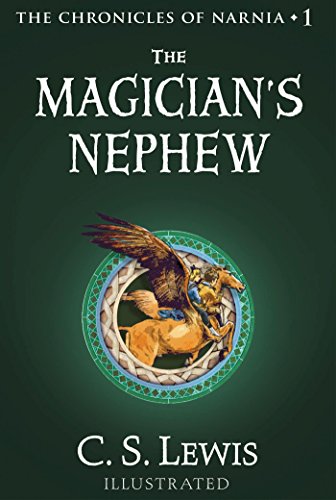

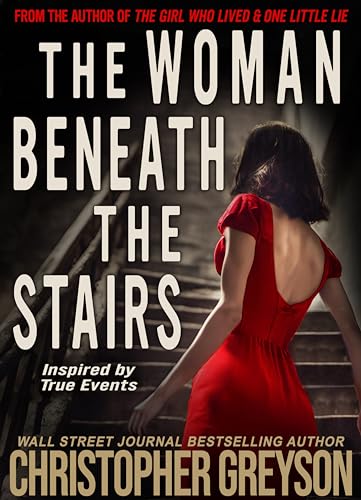


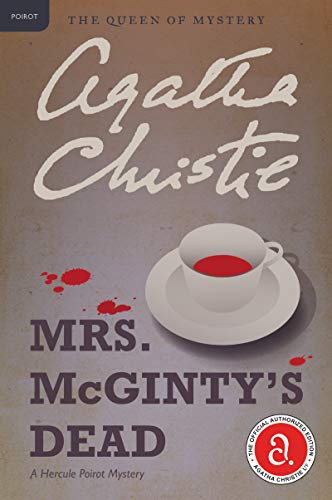







 Donna Galanti is the author of the paranormal suspense novel A Human Element (Echelon Press March 2012). Donna has a B.A. in English and a background in marketing. She lives with her family in an old farmhouse in PA with lots of nooks, fireplaces, and stinkbugs. Visit her at:
Donna Galanti is the author of the paranormal suspense novel A Human Element (Echelon Press March 2012). Donna has a B.A. in English and a background in marketing. She lives with her family in an old farmhouse in PA with lots of nooks, fireplaces, and stinkbugs. Visit her at: 



